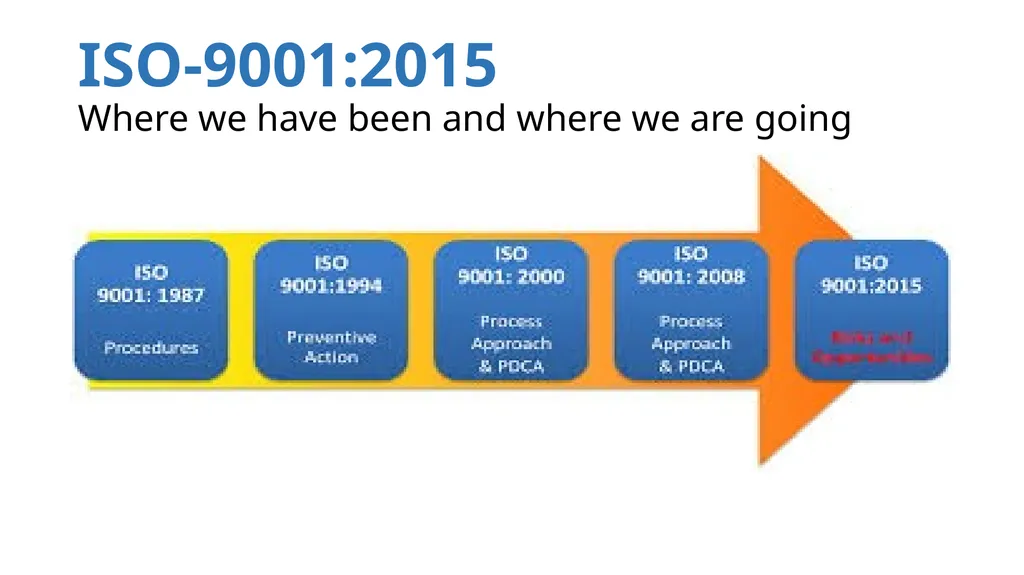
Author : myesha-ticknor | Published Date : 2025-05-24
Description: ISO-9001:2015 Where we have been and where we are going Transition Key to success Understand the requirements Conduct a gap analysis Dont let concerns with auditability and documented information drive bureaucracy into your qualityDownload Presentation The PPT/PDF document "" is the property of its rightful owner. Permission is granted to download and print the materials on this website for personal, non-commercial use only, and to display it on your personal computer provided you do not modify the materials and that you retain all copyright notices contained in the materials. By downloading content from our website, you accept the terms of this agreement.
Here is the link to download the presentation.
"ISO-9001:2015 Where we have been and where we are"The content belongs to its owner. You may download and print it for personal use, without modification, and keep all copyright notices. By downloading, you agree to these terms.













